第87章
She had been brought up to think a great deal of "nature" and nature's innocent laws; but now Rowland had spoken to her ardently of culture;her strenuous fancy had responded, and she was pursuing culture into retreats where the need for some intellectual effort gave a noble severity to her purpose.She wished to be very sure, to take only the best, knowing it to be the best.There was something exquisite in this labor of pious self-adornment, and Rowland helped it, though its fruits were not for him.In spite of her lurking rigidity and angularity, it was very evident that a nervous, impulsive sense of beauty was constantly at play in her soul, and that her actual experience of beautiful things moved her in some very deep places.
For all that she was not demonstrative, that her manner was simple, and her small-talk of no very ample flow; for all that, as she had said, she was a young woman from the country, and the country was West Nazareth, and West Nazareth was in its way a stubborn little fact, she was feeling the direct influence of the great amenities of the world, and they were shaping her with a divinely intelligent touch.
"Oh exquisite virtue of circumstance!" cried Rowland to himself, "that takes us by the hand and leads us forth out of corners where, perforce, our attitudes are a trifle contracted, and beguiles us into testing mistrusted faculties!" When he said to Mary Garland that he wished he might see her ten years hence, he was paying mentally an equal compliment to circumstance and to the girl herself.
Capacity was there, it could be freely trusted; observation would have but to sow its generous seed."A superior woman"--the idea had harsh associations, but he watched it imaging itself in the vagueness of the future with a kind of hopeless confidence.
They went a great deal to Saint Peter's, for which Rowland had an exceeding affection, a large measure of which he succeeded in infusing into his companion.She confessed very speedily that to climb the long, low, yellow steps, beneath the huge florid fa;alcade, and then to push the ponderous leathern apron of the door, to find one's self confronted with that builded, luminous sublimity, was a sensation of which the keenness renewed itself with surprising generosity.In those days the hospitality of the Vatican had not been curtailed, and it was an easy and delightful matter to pass from the gorgeous church to the solemn company of the antique marbles.
Here Rowland had with his companion a great deal of talk, and found himself expounding aesthetics a perte de vue.
He discovered that she made notes of her likes and dislikes in a new-looking little memorandum book, and he wondered to what extent she reported his own discourse.These were charming hours.
The galleries had been so cold all winter that Rowland had been an exile from them; but now that the sun was already scorching in the great square between the colonnades, where the twin fountains flashed almost fiercely, the marble coolness of the long, image-bordered vistas made them a delightful refuge.
The great herd of tourists had almost departed, and our two friends often found themselves, for half an hour at a time, in sole and tranquil possession of the beautiful Braccio Nuovo.
Here and there was an open window, where they lingered and leaned, looking out into the warm, dead air, over the towers of the city, at the soft-hued, historic hills, at the stately shabby gardens of the palace, or at some sunny, empty, grass-grown court, lost in the heart of the labyrinthine pile.
They went sometimes into the chambers painted by Raphael, and of course paid their respects to the Sistine Chapel;but Mary's evident preference was to linger among the statues.
Once, when they were standing before that noblest of sculptured portraits, the so-called Demosthenes, in the Braccio Nuovo, she made the only spontaneous allusion to her projected marriage, direct or indirect, that had yet fallen from her lips.
"I am so glad," she said, "that Roderick is a sculptor and not a painter."The allusion resided chiefly in the extreme earnestness with which the words were uttered.Rowland immediately asked her the reason of her gladness.
"It 's not that painting is not fine," she said, "but that sculpture is finer.It is more manly."Rowland tried at times to make her talk about herself, but in this she had little skill.She seemed to him so much older, so much more pliant to social uses than when he had seen her at home, that he had a desire to draw from her some categorical account of her occupation and thoughts.
He told her his desire and what suggested it."It appears, then," she said, "that, after all, one can grow at home!""Unquestionably, if one has a motive.Your growth, then, was unconscious?
You did not watch yourself and water your roots?"She paid no heed to his question."I am willing to grant,"she said, "that Europe is more delightful than I supposed;and I don't think that, mentally, I had been stingy.
But you must admit that America is better than you have supposed.""I have not a fault to find with the country which produced you!"Rowland thought he might risk this, smiling.
"And yet you want me to change--to assimilate Europe, I suppose you would call it.""I have felt that desire only on general principles.Shall I tell you what I feel now? America has made you thus far; let America finish you!
I should like to ship you back without delay and see what becomes of you.
That sounds unkind, and I admit there is a cold intellectual curiosity in it."She shook her head."The charm is broken; the thread is snapped!
I prefer to remain here."